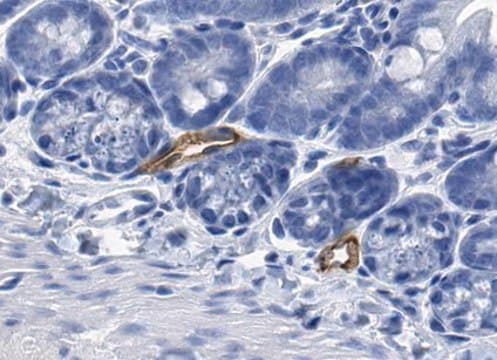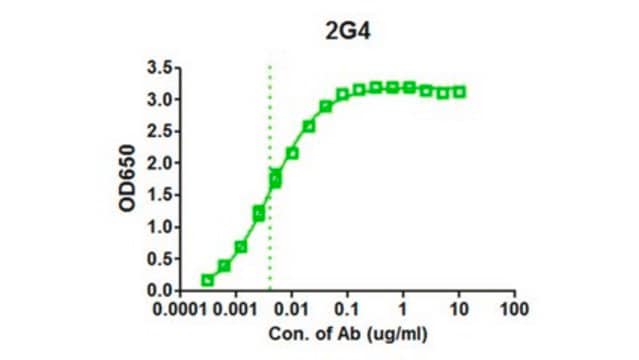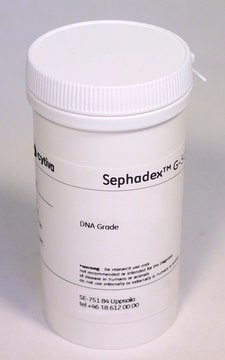Descripción general
Envelope glycoprotein (UniProt: Q05320; also known as GP1,2; GP) is encoded by the GP gene (Gene ID: 911829) in Zaire Ebola virus. Ebola virus (EBOV) is a filovirus that is shown to cause severe viral hemorrhagic fever with high lethality. It has a single stranded, negative-sense RNA genome that encodes seven viral structural proteins including nucleoprotein, virion proteins, and glycoprotein. The glycoprotein is the most important protein involved in pathogenesis. It is a type I transmembrane surface protein shown to be responsible for receptor binding, viral entry, and cellular tropism. The GP gene is reported to undergo transcriptional editing to give rise to several glycosylated proteins, including the structural protein GP1,2, and the secreted non-structural glycoprotein (sGP). The GP is synthesized as a 676-amino acid polyprotein with a signal peptide (aa 1-32). This polyprotein is cleaved by the furin to yield two disulfide linked subunits known as GP1 (aa 33-501) and GP2 (aa 502-676), which together form the GP1,2 heterodimer. The GP1 acts as the receptor-binding subunit and GP2 as the membrane fusion subunit. The GP1 subunit is expressed on the cell surface with the C-terminus oriented toward the aqueous environment, while the N-terminus is bound to GP2 via disulfide bonds. The GP1 subunit contains the heavily glycosylated mucin-like domain (aa 305-485), which is responsible for its cytotoxic function. The glycoprotein contains two coiled coil regions (aa 554-595 and 615-634) that play a role in its oligomerization and fusion activity. Clone 1H3 recognizes the secreted glycoprotein form (sGP) and also recognizes glycoprotein lacking a large part of the mucin domain (GP1,2 Mucin333 458). It does not recognize VSV G/ZEBOVGP and subfragment D. When administered before virus challenge, it provides only a partial protection. (Ref.: Qiu, X., et al. (2011). Clin. Immunol. 141(2); 218-227).
Especificidad
Clone 1H3 is a mouse monoclonal antibody that detects envelope glycoprotein of Zaire Ebola virus. It recognizes the secreted glycoprotein form (sGP) and binds to a conformational epitope in the first 295 amino acids.
Inmunógeno
Glycoprotein from Zaire Ebola virus, strain Mayinga, expressed in VSV G. Reverse genetics technique was used to create the recombinant virus VSV G/ZEBOV glycoprotein.
Aplicación
Anti-EBOV GP clone 1H3, Cat. No. MABF2113, is a mouse monoclonal antibody that detects Ebola virus Envelope Glycoprotein and has been tested for use in ELISA and, Immunocytochemistry, Immunoprecipitation, and Neutralizing Applications.
ELISA Analysis: A representative lot detected EBOV GP in ELISA applications (Qiu, X., et. al. (2011). Clin Immunol. 141(2):218-27).
Immunoprecipitation Analysis: Immunoprecipitation Analysis: A representative lot detected EBOV GP in Immunoprecipitation applications (Qiu, X., et. al. (2011). Clin Immunol. 141(2):218-27).
Immunocytochemistry Analysis: Immunocytochemistry Analysis: A representative lot detected EBOV GP in Immunocytochemistry applications (Qiu, X., et. al. (2011). Clin Immunol. 141(2):218-27).
Neutralizing Analysis: A representative provided partial protection when administered prior to virus challenge. (Qiu, X., et. al. (2011). Clin Immunol. 141(2):218-27).
ELISA Analysis: Various dilutions of this antibody detected Envelope glycoprotein in Recombinant Ebola virus Glycoprotein minus the transmembrane region (EBOV rGP TM).
Research Category
Inflammation & Immunology
Calidad
Evaluated by ELISA with recombinant Ebola virus Glycoprotein minus the transmembrane region (EBOV rGP deltaTM).
ELISA Analysis: Various dilutions of this antibody detected EBOV GP in Recombinant Ebola virus Glycoprotein minus the transmembrane region (EBOV rGP deltaTM).
Descripción de destino
74.46 kDa calculated.
Forma física
Format: Purified
Protein G purified
Purified mouse monoclonal antibody IgG2a in PBS without azide.
Almacenamiento y estabilidad
Stable for 1 year at -20°C from date of receipt. Handling Recommendations: Upon receipt and prior to removing the cap, centrifuge the vial and gently mix the solution. Aliquot into microcentrifuge tubes and store at -20°C. Avoid repeated freeze/thaw cycles, which may damage IgG and affect product performance.
Otras notas
Concentration: Please refer to lot specific datasheet.
Cláusula de descargo de responsabilidad
Unless otherwise stated in our catalog or other company documentation accompanying the product(s), our products are intended for research use only and are not to be used for any other purpose, which includes but is not limited to, unauthorized commercial uses, in vitro diagnostic uses, ex vivo or in vivo therapeutic uses or any type of consumption or application to humans or animals.









